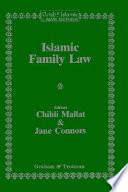
Islamic Law and the Challenges of Modernity
Since Europeans first colonized Arab lands in the 19th century, they have been pressing to have the area's indigenous laws and legal systems accord with Western models. Although most Arab states now have national codes of law that reflect Western influence, fierce internal struggles continue over how to interpret Islamic law, particularly in the areas of gender and family. From different geographical and ideological points across the contemporary Arab world, Haddad and Stowasser demonstrate the range of views on just what Islam's legal heritage in the region should be. For either law or religion classes, Islamic Law and the Challenges of Modernity provides the broad historical overview and particular cases needed to understand this contentious issue. Visit our website for sample chapters!
- ISBN 13 : 9780759106710
- ISBN 10 : 0759106711
- Judul : Islamic Law and the Challenges of Modernity
- Pengarang : Yvonne Yazbeck Haddad, Barbara Freyer Stowasser, Barbara Freyer Stowasser, Barbara Freyer Stowasser, Barbara Freyer Stowasser, Barbara Freyer Stowasser, Barbara Freyer Stowasser, Barbara Freyer Stowasser, Barbara Freyer Stowasser, Barbara Freyer Stowasser, Barbara Freyer Stowasser, Barbara Freyer Stowasser, Barbara Freyer Stowasser, Barbara Freyer Stowasser, Barbara Freyer Stowasser, Barbara Freyer Stowasser, Barbara Freyer Stowasser, Barbara Freyer Stowasser, Barbara Freyer Stowasser, Barbara Freyer Stowasser, Barbara Freyer Stowasser, Barbara Freyer Stowasser, Barbara Freyer Stowasser, Barbara Freyer Stowasser,
- Kategori : Law
- Penerbit : Rowman Altamira
- Bahasa : en
- Tahun : 2004
- Halaman : 278
- Google Book : http://books.google.co.id/books?id=6YluNHQKSqAC&dq=intitle:islamic+Family+Law&hl=&source=gbs_api
-
Ketersediaan :
For either law or religion classes, Islamic Law and the Challenges of Modernity provides the broad historical overview and particular cases needed to understand this contentious issue. Visit our website for sample chapters!









